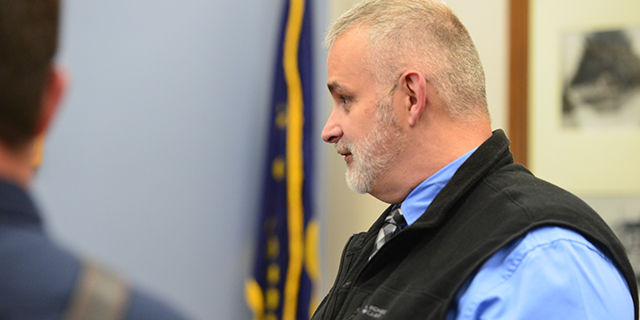New rules reduce cellphone use in La Grande schools
Published 7:00 am Thursday, September 29, 2022

- La Grande Middle School, 1108 Fourth St., awaits students in this 2020 photo.
LA GRANDE — Cellphones are not going the way of rotary phones at La Grande High School and La Grande Middle School. However, it is becoming much harder to find students using cellphones at school since the 2022-23 academic year started in late August.
Trending
Students at the middle and high schools are not forsaking their devices but they are adhering to rule changes that put greater restrictions on their use during school hours.
At La Grande High School, students now must keep their cellphones out of sight during classes but can use them outside of the classroom. Students at the middle school cannot have phones with them at any time of the school day, unless they are needed for medical reasons.
Anne Marie Fritz, a middle school social studies teacher, said the impact has been significant now that students are no longer distracted by cellphones.
Trending
“Students are looking at each other and talking with each other more,” she said.
Prior to the start of the school year, seventh and eighth graders could have cellphones but they could not use them in class and sixth graders were not allowed to have the devices.
Fritz credits the new restrictions with boosting a feeling of camaraderie at the middle school and improving student friendships. She said that when people communicate primarily via cellphones it is easier for miscommunication to occur because you cannot see the immediate reaction to what you say.
“When you are talking face to face you can always tell if you hurt someone’s feelings,” Fritz said.
The middle school teacher credits part of the success of the rule changes to the parents of students, who have helped students accept the change.
“They have been super encouraging,” Fritz said.
Keri Myer, the middle school librarian, is also a big supporter of the tighter restrictions.
“It is a great thing,” she said.
Myer noted that prior to this school year, students would sometimes take mischievous steps to use their cellphones. She noticed that some would ask for permission to leave class in order to come to the library or use the restroom, then would start using their device the moment they stepped into the hallway.
Fully engaged
La Grande High School Assistant Principal Eric Freeman said the change at the school is getting students to focus more on what they are studying by eliminating a major distraction.
“We want students to be more fully engaged in the classroom,” he said.
In previous years, some teachers at the high school allowed students to have cellphones out while others, including math teacher Jess Roberts, did not.
“It was confusing for students,” Roberts said.
The new uniform restrictions have erased much of this, Roberts said. He noted that previously he had to ask students to put cellphones away 10 times a week, but since the start of the school year he has had to make the request only a total of 10 times.
Roberts senses that students like being cut off from their cellphones.
“It gives them a sense of freedom,” he said.
Garrett Dixon, a high school English teacher, shares Roberts’ sentiment regarding students.
“They like having a break from their phones,” he said.
Sophomore Hunter DeCoteau said he misses listening to music on his phone during the school day, but overall it is good that the new restriction is in place because some students were doing inappropriate things with their cellphones, including secretly recording conversations.
Phillip Williams, like DeCoteau, said he also misses the chance to listen to music, but believes the restrictions are a plus because students are focusing more on their academic work.
“They are getting kids to engage more,” he said of the rules.
Williams, a sophomore, said students may ultimately learn more by getting information from sources beyond Google.
Dixon said students have responded to the new restrictions better than he anticipated. He thought it would be harder for them to break away from their cellphones because using them has become such an ingrained habit for many. Dixon said he now has to spend hardly any time dealing with cellphone issues in his classes. Previously, he said, he spent three to five minutes each period addressing problems related to cellphones.
The English teacher is also noticing that his students are talking to each other more this school year, which he credits to the new rules.
Not being allowed to use their cellphones during class “is forcing them to socialize more,” he said.








